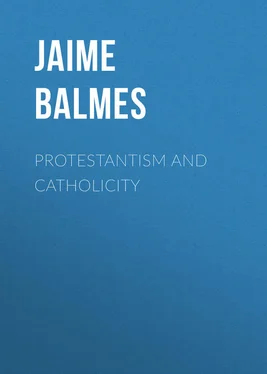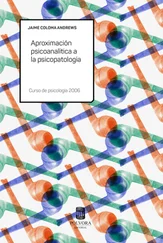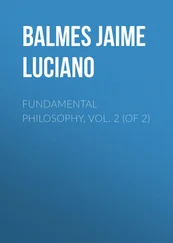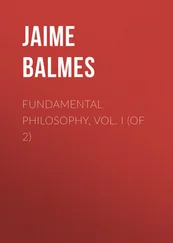Jaime Balmes - Protestantism and Catholicity
Здесь есть возможность читать онлайн «Jaime Balmes - Protestantism and Catholicity» — ознакомительный отрывок электронной книги совершенно бесплатно, а после прочтения отрывка купить полную версию. В некоторых случаях можно слушать аудио, скачать через торрент в формате fb2 и присутствует краткое содержание. Жанр: foreign_antique, foreign_prose, на английском языке. Описание произведения, (предисловие) а так же отзывы посетителей доступны на портале библиотеки ЛибКат.
- Название:Protestantism and Catholicity
- Автор:
- Жанр:
- Год:неизвестен
- ISBN:нет данных
- Рейтинг книги:3 / 5. Голосов: 1
-
Избранное:Добавить в избранное
- Отзывы:
-
Ваша оценка:
- 60
- 1
- 2
- 3
- 4
- 5
Protestantism and Catholicity: краткое содержание, описание и аннотация
Предлагаем к чтению аннотацию, описание, краткое содержание или предисловие (зависит от того, что написал сам автор книги «Protestantism and Catholicity»). Если вы не нашли необходимую информацию о книге — напишите в комментариях, мы постараемся отыскать её.
Protestantism and Catholicity — читать онлайн ознакомительный отрывок
Ниже представлен текст книги, разбитый по страницам. Система сохранения места последней прочитанной страницы, позволяет с удобством читать онлайн бесплатно книгу «Protestantism and Catholicity», без необходимости каждый раз заново искать на чём Вы остановились. Поставьте закладку, и сможете в любой момент перейти на страницу, на которой закончили чтение.
Интервал:
Закладка:
The diffusion of such beneficent doctrines necessarily tended to improve greatly the condition of slaves; their immediate effect was to soften that excessive rigor, that cruelty which would be incredible if it were not incontrovertibly proved. We know that the master had the right of life and death, and that he abused that power even to putting a slave to death from caprice, as Quintus Flaminius did in the midst of a festival. Another caused one of these unfortunate beings to be thrown to the fishes, because he broke a glass of crystal. This is related of Vedius Pollio; and this horrible cruelty was not confined to the circle of a few families subject to a master devoid of compassion; no, cruelty was formed into a system, the fatal but necessary result of erroneous notions on this point, and of the forgetfulness of the sentiments of humanity. This violent system could only be supported by constantly trampling upon the slave; and there was no cessation of tyranny until the day when he, with superior power, attacked his master and destroyed him. An ancient proverb said, "So many slaves, so many enemies." We have already seen the ravages committed by men thus rendered savage by revenge, whenever they were able to break their chains; but certainly, when it was desired to terrify them, their masters did not yield to them in ferocity. At Sparta, on one occasion when they feared the ill-will of the Helotes, they assembled them all at the temple of Jupiter, and put them to death. ( Thucyd. b. iv.) At Rome, whenever a master was assassinated, all his slaves were condemned to death. We cannot read in Tacitus without a shudder ( Ann. l. xiv. 43) the horrible scene which was witnessed when the prefect of the town, Pedanius Secundus, was assassinated by one of his slaves. Not less than four hundred were to die; all, according to the ancient custom, were to be led to punishment. This cruel and pitiable spectacle, in which so many of the innocent were to suffer death, excited the compassion of the people, who raised a tumult to prevent this horrid butchery. The Senate, in doubt, deliberated on the affair, when an orator named Cassius maintained with energy that it was necessary to complete the bloody execution, not only in obedience to the ancient custom, but also because without it it would be impossible to preserve themselves from the ill-will of the slaves. His words are all dictated by injustice and tyranny; he sees on all sides dangers and conspiracies; he can imagine no other safeguards than force and terror. The following passage is above all remarkable in his speech, as showing in a few words the ideas and manners of the ancients in this matter: "Our ancestors," says the senator, "always mistrusted the character of slaves, even of those who, born on their possessions and in their houses, might be supposed to have conceived from their cradle an affection for their masters; but as we have slaves of foreign nations, differing in customs and religion, this rabble can only be restrained by terror." Cruelty prevailed, the boldness of the people was repressed, the way was filled with soldiers, and the four hundred unfortunate beings were led to punishment.
To soften this cruel treatment, to banish these frightful atrocities, ought to have been the first effect of the Christian doctrines; and we may rest assured that the Church never lost sight of so important an object. She devoted all her efforts to improve as much as possible the condition of slaves; in punishments she caused mildness to be substituted for cruelty; and what was more important than all, she labored to put reason in the place of caprice, and to make the impetuosity of masters yield to the calmness of judges; that is to say, she every day assimilated the condition of slaves more and more to that of freemen, by making right and not might reign over them. The Church never forgot the noble lesson which the Apostle gave when writing to Philemon, and interceding in favor of a fugitive slave named Onesimus; he spoke in his favor with a tenderness which this unhappy class had never before inspired: "I beseech thee," he says to him, "for my son Onesimus. Receive him as my own bowels; no more as a slave, but as a most dear brother. If he hath wronged thee in any thing, or is in thy debt, put that to my account." (Epis. to Phil.) The Council of Elvira, held in the beginning of the fourth century, subjects the woman who shall have beaten her slave so as to cause her death in three days to many years of penance; the Council of Orleans, held in 549, orders that if a slave guilty of a fault take refuge in a church, he is to be restored to his master, but not without having exacted from the latter a promise, confirmed by oath, that he will not do him any harm; that if the master, in violation of his oath, maltreat the slave, he shall be separated from the communion of the faithful and the sacraments. This canon shows us two things: the habitual cruelty of masters, and the zeal of the Church to soften the treatment of slaves. To restrain this cruelty, nothing less than an oath was required; and the Church, always so careful in these things, yet considered the matter important enough to justify and require the invocation of the sacred name of God.
The favor and protection which the Church granted to slaves rapidly extended. It seems that in some places the custom was introduced of requiring a promise on oath, not only that the slave who had taken refuge in the church should not be ill-treated in his person, but even that no extraordinary work should be imposed on him, and that he should wear no distinctive mark. This custom, produced no doubt by zeal for humanity, but which may have occasioned some inconveniences by relaxing too much the ties of obedience, and allowing excesses on the part of slaves, appears to be alluded to in a regulation of the Council of Epaone (now Abbon, according to some), held about 517. This Council labors to stop the evil by prescribing a prudent moderation; but without withdrawing the protection already granted. It ordains, in the 39th canon, "That if a slave, guilty of any atrocious offence, takes refuge in a church, he shall be saved from corporal punishment; but the master shall not be compelled to swear that he will not impose on him additional labor, or that he will not cut off his hair, in order to make known his fault." Observe that this restriction is introduced only in the case when the slave shall have committed a heinous offence, and even in this case all the power allowed to the master consists in imposing on the slave extraordinary labor, or distinguishing him by cutting his hair.
Perhaps such indulgence may be considered excessive; but we must observe that when abuses are deeply rooted, they cannot be eradicated without a vigorous effort. At first sight it often appears as if the limits of prudence were passed; but this apparent excess is only the inevitable oscillation which is observed before things regain their right position. The Church had therein no wish to protect crime, or give unmerited indulgence; her object was to check the violence and caprice of masters; she did not wish to allow a man to suffer torture or death because such was the will of another. The establishment of just laws and legitimate tribunals, the Church has never opposed; but she has never given her consent to acts of private violence. The spirit of opposition to the exercise of private force, which includes social organization, is clearly shown to us in the 15th canon of the Council of Merida, held in 666. I have already shown that slaves formed a large portion of property. As the division of labor was made in conformity with this principle, slaves were absolutely necessary to those who possessed property, especially when it was considerable. Now the Church found this to be the case; and as she could not change the organization of society on a sudden, she was obliged to yield to necessity, and admit slavery. But if she wished to introduce improvements in the lot of slaves in general, it was good for her to set the example herself: this example is found in the canon I have just quoted. There, after having forbidden the bishops and priests to maltreat the servants of the Church by mutilating their limbs, the Council ordains that if a slave commit an offence, he shall be delivered to the secular judges, but so that the bishops shall moderate the punishment inflicted on him. We see by this canon that the right of mutilation exercised by private masters was still in use; and perhaps it was still more strongly established, since we see that the Council limits itself to interdicting that kind of punishment to ecclesiastics, without saying any thing as to laymen. No doubt, one of the motives for this prohibition made to ecclesiastics, was to prevent their shedding human blood, and thus rendering themselves incapable of exercising their lofty ministry, the principal act of which is the august sacrifice in which they offer a victim of peace and love; but this does not in any way detract from the merit of the regulation, or at all diminish its influence on the improvement of the condition of slaves. It was the substitution of public vengeance for private; it was again to proclaim the equality of slaves and freemen with respect to the effusion of their blood; it was to declare that the hands which had shed the blood of a slave, had contracted the same stain as if they had shed that of a freeman. Now, it was necessary to inculcate these salutary truths on men's minds in every way, for they ran in direct contradiction to the ideas and manners of antiquity; it was necessary to labor assiduously to destroy the shameful and cruel exceptions which continued to deprive the majority of mankind of a participation in the rights of humanity. There is, in the canon which I have just quoted, a remarkable circumstance, which shows the solicitude of the Church to restore to slaves the dignity and respect of which they had been deprived. To shave the hair of the head was among the Goths a very ignominious punishment; which, according to Lucas de Tuy, was to them more cruel than death itself. It will be understood, that whatever was the force of prejudice on this point, the Church might have allowed the shaving of the hair without incurring the stain which was attached to the shedding of blood. Yet she was not willing to allow it, which shows us how attentive she was to destroy the marks of humiliation impressed on slaves. After having enjoined priests and bishops to deliver criminal slaves to the judges, she commands them "not to allow them to be shaved ignominiously." No care was too great in this matter; to destroy one after another the odious exceptions which affected slaves, it was necessary to seize upon all favorable opportunities. This necessity is clearly shown by the manner in which the eleventh Council of Toledo, held in 675, expresses itself. This Council, in its 6th canon, forbids bishops themselves to judge crimes of a capital nature, as it also forbids them to order the mutilation of members. Behold in what terms it was considered necessary to state that this rule admitted of no exception; "not even," says the Council, "with respect to the slaves of the Church." The evil was great, it could not be cured without assiduous care. Even the right of life and death, the most cruel of all, could not be extirpated without much trouble; and cruel applications of it were made in the beginning of the sixth century, since the Council of Epaone, in its 34th canon, ordains that "the master who, of his own authority , shall take away the life of his slave, shall be cut off for two years from the communion of the Church." After the middle of the ninth century, similar attempts were still made, and the Council of Worms, held in 868, labored to repress them, by subjecting to two years of penance the master who, of his own authority, shall have put his slave to death.
Читать дальшеИнтервал:
Закладка:
Похожие книги на «Protestantism and Catholicity»
Представляем Вашему вниманию похожие книги на «Protestantism and Catholicity» списком для выбора. Мы отобрали схожую по названию и смыслу литературу в надежде предоставить читателям больше вариантов отыскать новые, интересные, ещё непрочитанные произведения.
Обсуждение, отзывы о книге «Protestantism and Catholicity» и просто собственные мнения читателей. Оставьте ваши комментарии, напишите, что Вы думаете о произведении, его смысле или главных героях. Укажите что конкретно понравилось, а что нет, и почему Вы так считаете.












